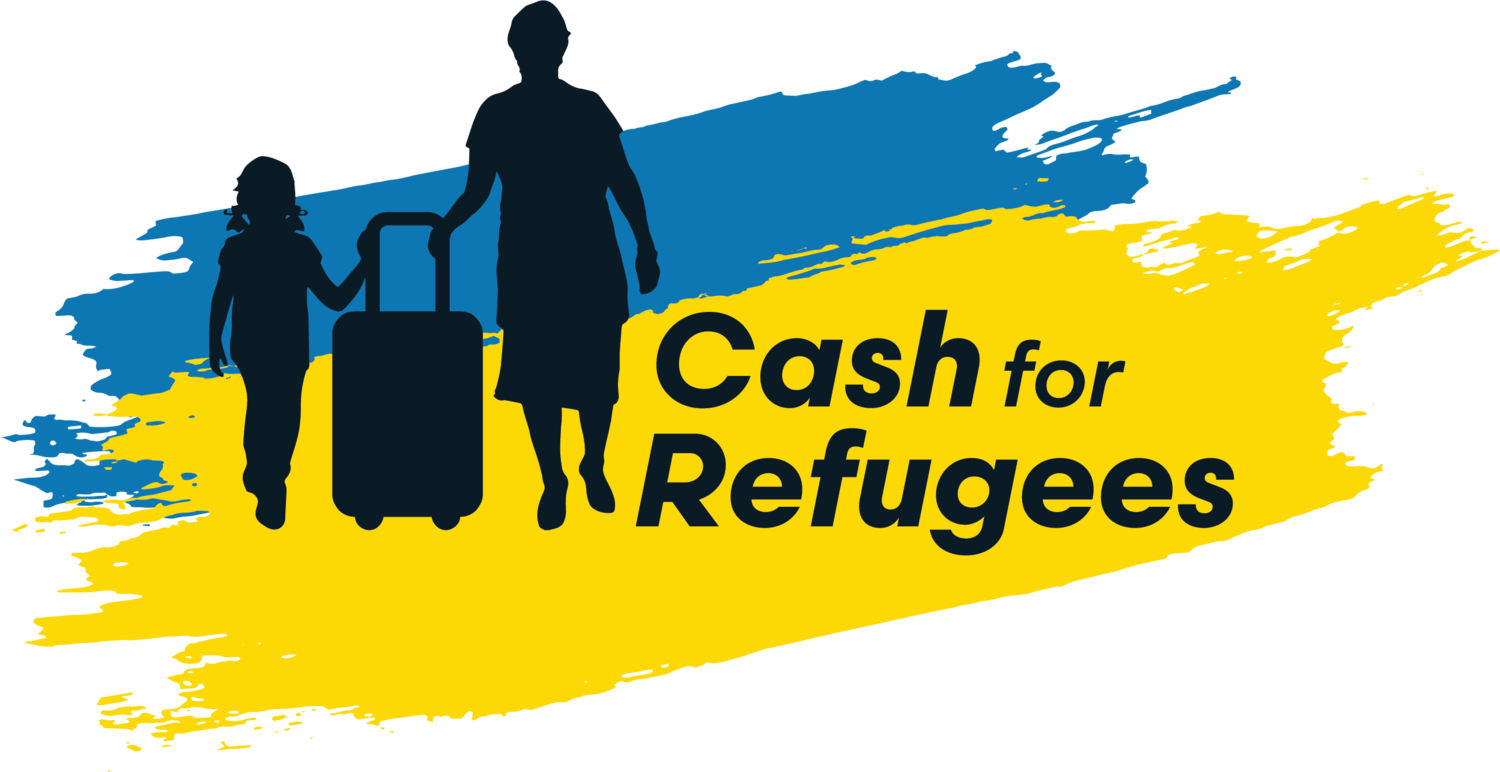Lutsk, Volyn’ Region, Ukraine
A woman looks to me like she’s in her 80s but shows her passport and she’s 63. She has clearly gone through a lot, and moves and speaks with difficulty. We only support people over 65 and parents of children under 18. She then shows a birth certificate for a child who is only 10. IVF is definitely not a thing here, so I’m confused. Then she keeps pulling out paperwork. I read various Ukrainian documents. I skim through the papers and see that her daughter, who was over 18, was killed in the war. As were her son-in-law and her husband. The last document she produces is a court order making her the sole legal guardian of her 10-year-old grandson. Which is how she qualifies for our grant. I complete the paperwork without asking for any more details as I’m holding back tears. If we don’t run into any more issues with bank transfers, she’ll receive the equivalent of $150 in about a week.
A family comes through from Energodar, Ukraine, the town with the largest nuclear power plant in Europe that the Russians are still holding hostage. The woman has papers for her two young kids and also brought with her her elderly mother. I asked how she got out. She said they didn’t have the money for the long journey via Crimea and Russia then Turkey or Europe back to Ukraine, so they tried to get out directly by driving their car through a checkpoint that was sometimes opened through the front, directly North to nearby unoccupied Zaporizhzhia. It took them 5 days and 5 nights. During that time it was extremely hot, there was no water, no bathrooms, and just an unpredictable wait that ended up being 5 days. The Russian soldiers at the checkpoints humiliated them, took their bags, and just emptied them on the ground by the side of the road. Then went through their cell phone looking for social media posts or emails sympathetic to Ukraine. They were terrified that if they had accidentally forgotten to erase a post they could be executed on the spot. They made it through eventually.
Another man from Kherson drove his family through the very active front to Mykolaiv. No open checkpoints there, but he was able to bribe various Russian soldiers for directions on how to drive through farmers’ tracks on the fields without hitting any of the land mines until the next checkpoint. Every time he paid and drove on he was wondering whether they would just take his money and direct him to the minefield anyway.
Another family from Melitopol made it out the long way via the filtration camps in Russia. There was no active front there, they were in relative safety living under Russian occupation and keeping their heads down. But they said they chose to take the risk of the journey just to make it back to Ukraine because under occupation there was always the fear of a random arrest and torture.
Many others came from towns that weren’t occupied but were right on the front lines, like Avdiievka near Donetsk. They held out as long as they could in basements, watching their neighbors die when buildings collapsed from Russian shelling.
Others had escaped months ago from places now becoming safer like Kharkiv or just recently liberated like Kupiansk. They were very eager to return as soon as they could, to rebuild their destroyed homes.
We processed 350 people on the day I got to participate directly. Every person I met in Ukraine has been emotional about the war, united in their determination to save their homeland from the invaders, and totally shocked at the inhuman behavior of the Russian invaders. Every. Single. One. I was there for a week, and I wanted to practice my newly acquired Ukrainian skills so I made it a point to speak to as many people as possible. There was no diversity of thought on the subject of the war. I would have expected at least a small fraction of people to be indifferent, focused on their day-to-day problems, and hoping for peace in general without taking sides. But it wasn’t there. The country was completely united as if it was one nuclear family whose house had just got broken into and one of whose children was already killed. It was incredible to see, inspiring and beautiful, and very, very clear that they will prevail and drive the invaders out no matter the cost, and then rebuild.
But they will not forgive the Russians, and they will not bother to try to separate the good ones from the bad ones. Not this generation and not the next.
They have suffered so much and they need the help so much and there’s much less help available for them in general since most nonprofits are raising much less now that most donors are also tired. But when you meet refugees in person you realize in a completely different way that they are so very real. And they need us to keep going, so we’re going to find a way to keep going. I’m also donating more on the side to organizations helping more directly with the war, providing things like optical sights, drones, and high-end sniper rifles. But CashForRefugees will stay focused on our mission, and we will power through the fundraising slog and we will not stop, no matter how hard it gets. Because it’s still infinitely easier than what the Ukrainians are going through.
by Semyon Dukach
at Lutsk, Volyn’ Region, Ukraine
